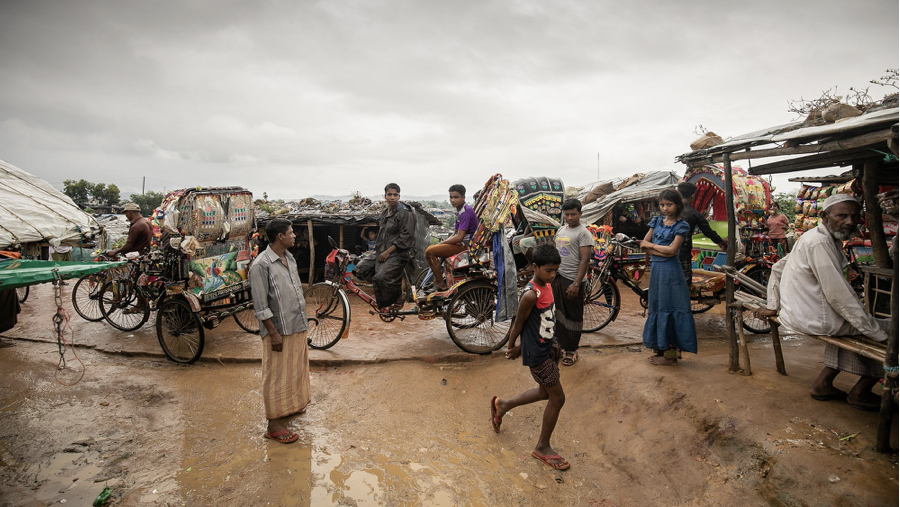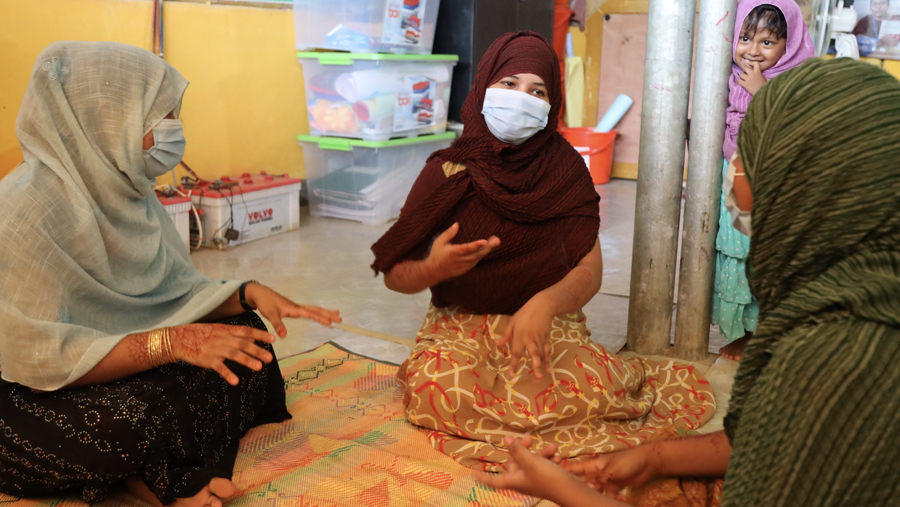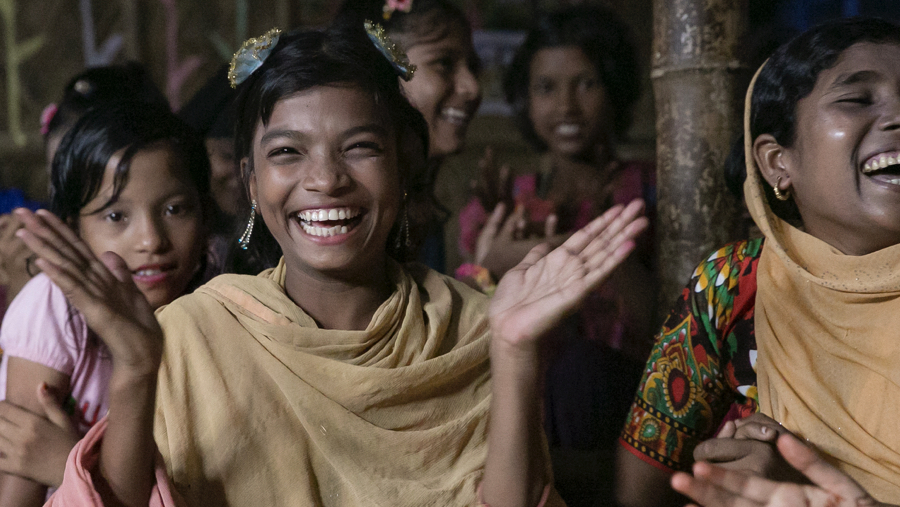“Women and girls can understand my pain as they face the same thing”
“Women and girls can understand my pain as they face the same thing”
Hotiza is a youth mentor of the Girl Shine Programme in Cox’s Bazar Refugee Camp. She learned about menstrual health in one of the UNFPA-supported women-friendly spaces and now inspires girls to speak openly about their bodies and their unique needs.
“During menstruation I feel afraid that my father or brother may see the menstrual cloths as our house is small,” Hotiza says. “So I dry my menstrual cloth by covering it with another cloth after cleaning it with hot water, so no one can see it.”
Hotiza lives in the world's largest refugee camp in Cox’s Bazar. She and her family have been living in a makeshift house since 2017, when they fled Myanmar. She says her mother is her ally in managing her reusable sanitary pads and cloths.

“I would be ashamed if my father or brother saw it,” Hotiza says. “My mother can see it, no problem. She can support me. This is the main challenge because my home is tiny.”
“During menstruation I feel afraid that my father or brother may see the menstrual cloths as our house is small.”
UNFPA helped set up a network of women-friendly spaces in Cox’s Bazar. These centers have become the focal point for girls to get together, share and learn.
“In the woman-friendly space there are apas (caseworkers),” she says. “They listen to us and talk about menstrual hygiene, and how to manage it."

Hotiza says cultural barriers and the chaos of displacement meant that she never spoke about these issues before.
“In Myanmar, they did not talk about menstruation and menstrual hygiene,” she says. “But here we have apas and they teach us how to manage it. Now, we learn and we can clean ourselves properly.”
“When I go back home I talk about this issue with my friends and young girls who have no idea about menstrual hygiene.”
Hotiza went frequently to the centre and she started to have discussions with her friends at home.
“When I go back home I talk about this issue with my friends and young girls who have no idea about menstrual hygiene,” she says. “They learn this topic and my mum sometimes listens to our discussions. She can learn about this as well.”
Hotiza has conversations with girls who are too timid or are not permitted to attend the sessions. “I teach my neighborhood girls, who don’t come to women-friendly spaces.”
“I teach my neighborhood girls, who don’t come to women-friendly spaces.”
Hotiza says she uses a mix of cloth and reusable pads that she got from the centre.
“I usually don’t buy pads because they are expensive,” she says. “When I am at home, I use cloth and wash them properly and dry them in full sunlight for reuse. A couple of times I received pads and I use them if I’m going far from home.”
“We discuss the menstruation cycle, bodily changes during adolescence, decision-making, confidence and what will happen if someone marries before 18 years old.”
Hotiza works as a youth mentor of the Girl Shine Programme at the centre and engages directly with girls who are curious about menstrual health.
“I work with adolescent girls, ages 10-19,” she says. “We discuss the menstruation cycle, bodily changes during adolescence, decision-making, confidence and what will happen if someone marries before 18 years old.”

Hotiza is grateful that she can share her knowledge to empower girls in her community. “I really like that I can support others,” she says. “I didn’t get a chance to learn these topics back in Myanmar but here I got the opportunity to learn and I can teach others.”
Despite the progress in speaking with girls about menstruation, she says she still cannot raise the issue at home. “It’s not possible to talk about this issue with my father or brother,” she says.
“How would a man understand women’s pain?
They don’t have this kind of pain."
Hotiza says the issue is culturally sensitive and women need their own space to talk about the challenges of menstrual health.
“How would a man understand women’s pain?” she says. “They don’t have this kind of pain. Women and girls can understand my pain as they face the same thing.”
Learn more
https://www.unfpa.org/menstruationfaq


